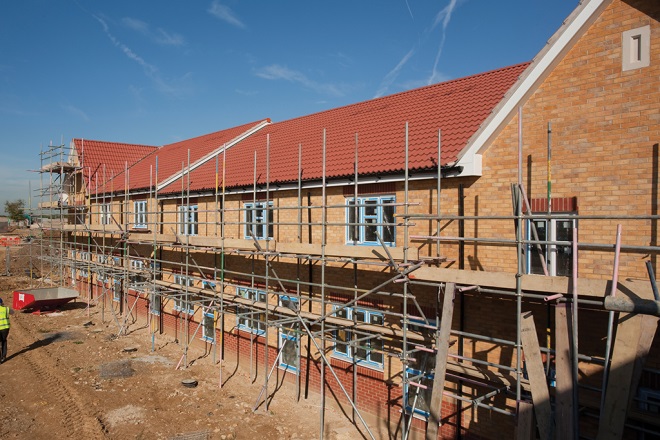Construction output growth dropped back in October as high borrowing costs dampened new orders in all sectors.
Overall, output in the construction sector came in at 54.3, a drop from September’s 57.2 figure – a two-and a half year record high, according to October’s S&P Global UK Construction Purchasing Managers’ Index (PMI).
Despite the slowdown in growth, October’s result is above average for 2024, which was 51.4, signalling a “solid expansion of total industry activity”, the analysis stated.
Any number above the neutral mark of 50 represents output growth.
Commercial and civil engineering saw slower growth than the previous month, with housebuilding output dropping slightly.
Housebuilding’s index score fell to 49.4, a contraction stemming from “government policy uncertainty, fragile consumer confidence and elevated borrowing costs,” according to S&P Global Market Intelligence economics director Tim Moore.
Civil engineering was the best performing part of the construction sector, registering a 56.2 value.
That was also down from the 59 recorded in September – but output growth remained strong thanks to rising demand in energy infrastructure specifically. Renewable projects, in particular, saw a rise in demand.
Output grew in the commercial sector too, albeit at a slower pace, coming in at 52.8 in comparison to 55.2 in September.
Looking ahead, the monthly analysis pointed to a solid expansion of new work across all areas, suggesting “a robust improvement in order book pipelines across the construction sector in the second half of 2024”, Moore said. That helped to push job creation to a three-month high.
Despite that, business optimism remains “relatively subdued”, he added. Output growth expectations are now at their lowest since December 2023.
Jordan Smith, technical director at consultancy Thomas & Adamson, which is part of Egis Group, warned that a “slight sense of uncertainty” had led to slower growth in the sector.
“Proactive supply chain management remains key to delivering successful projects, with careful planning around procurement, and material delivery times essential to mitigate project risk,” he said.
Barry Goodall, partner and head of construction at independent law firm Brabners, said construction firms should be “feeling positive about the future” following the renewed investment in the infrastructure sector announced in the budget.
“But while these are steps in the right direction, challenges around skills and delivery remain – challenges that will likely be exacerbated by the increased national insurance burden contractors now face while looking to invest in their workforce,” he said.

